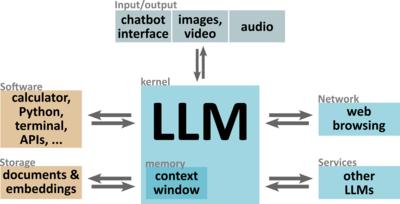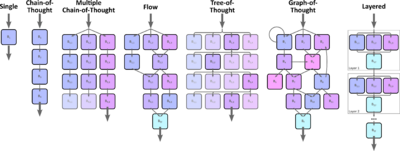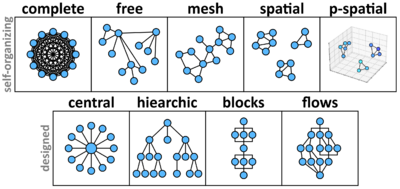Difference between revisions of "ERI"
KevinYager (talk | contribs) (→Models) |
KevinYager (talk | contribs) (→Exocortex) |
||
| Line 45: | Line 45: | ||
## Treat interaction graph as ML optimization problem | ## Treat interaction graph as ML optimization problem | ||
## '''Novel:''' Map-spatial: Use a map (e.g. of BNL) to localize docs/resources/etc. | ## '''Novel:''' Map-spatial: Use a map (e.g. of BNL) to localize docs/resources/etc. | ||
| − | ## '''Novel:''' Pseudo-spatial: Use position in embedding space to localize everything | + | ## '''Novel:''' Pseudo-spatial: Use position in embedding space to localize everything. Evolving state (velocity/momentum) of agent carries information. |
## '''Novel:''' Dynamic-pseudo-spatial: Allow the space to be learned and updated; directions in embedding space can dictate information flow | ## '''Novel:''' Dynamic-pseudo-spatial: Allow the space to be learned and updated; directions in embedding space can dictate information flow | ||
# Establish benchmarks/challenges/validations | # Establish benchmarks/challenges/validations | ||
Revision as of 15:53, 15 January 2025
ERI
Contents
Research Thrusts
Models
How to adapt frontier methods and foundation models to science?
- Topical fine-tuning
- Tool-use
- Advanced retrieval-augmented generation (RAG++)
- Novel: Pre-generation: Agents continually add content to RAG corpus. ("Pre-thinking" across many vectors.)
- Science-adapted tokenization/embedding (xVal, [IDK])
- Specialized sampling
- Entropy sampling: measure uncertainty of CoT trajectories
- Novel: Handoff sampling:
- Useful for:
- text-to-text (specialization, creativity, etc.)
- text-to-tool (e.g. math)
- test-to-field (integrate non-textual FM)
- Implementation:
- MI-SAE on both spaces, find matches (or maybe just "analogies"?)
- Useful for:
Agents
How to make AI agents smarter?
- Iteration schemes (loops, blocks)
- Thinking:
- Blocky/neural: Define architecture, allow system to pick hyper-parameters
- Autonomous ideation:
- Novel: Treat ideation as an AE problem in a semantic embedding space.
- Thinking:
- Memory
- Thought-templates, thought-flows
Exocortex
What is the right architecture for AI swarms?
- Interaction schemes
- Test options, identify match between science task and scheme
- Treat interaction graph as ML optimization problem
- Novel: Map-spatial: Use a map (e.g. of BNL) to localize docs/resources/etc.
- Novel: Pseudo-spatial: Use position in embedding space to localize everything. Evolving state (velocity/momentum) of agent carries information.
- Novel: Dynamic-pseudo-spatial: Allow the space to be learned and updated; directions in embedding space can dictate information flow
- Establish benchmarks/challenges/validations
Infrastructure
Architecture
What software architecture is needed?
- Code for scaffolding
- Scheme for inter-agent messaging (plain English w/ pointers, etc.)
- Data management
Hardware
How to implement inference-time compute for exocortex?
- Heterogeneous hardware
- Elastic (combine local & cloud)
- Workflow management
Human-Computer Interaction (HCI)
What should the HCI be?


